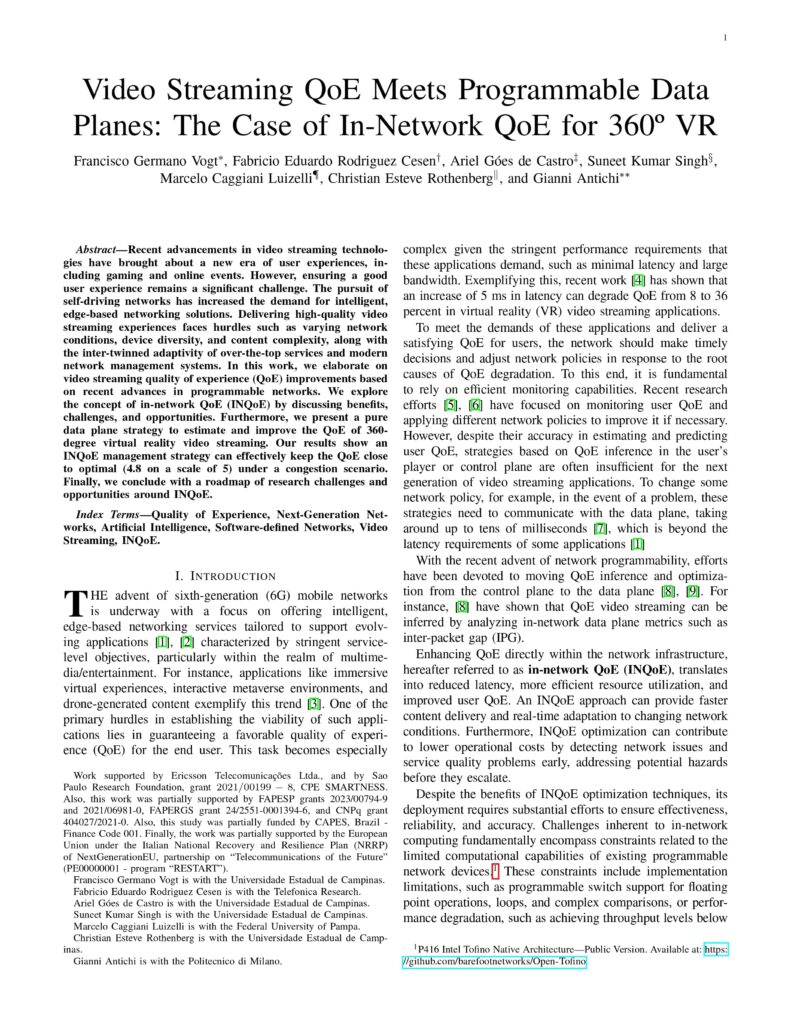A recent study by Francisco Germano Vogt (UNICAMP), Fabricio Eduardo Rodriguez Cesen (Telefonica Research, Spain), Ariel Goes de Castro (UNICAMP), Suneet Kumar Singh (UNICAMP), Marcelo Caggiani Luizelli (UNIPAMPA), Christian Esteve Rothenberg (UNICAMP), and Gianni Antichi (Politecnico di Milano) discusses novel approaches to enhancing Quality of Experience (QoE) in video streaming, with a focus on 360º virtual reality (VR) applications. The research entitled “Video Streaming QoE Meets Programmable Data Planes: The Case of In-Network QoE for 360º VR” explores the concept of in-network QoE (INQoE), leveraging programmable data planes to address challenges such as fluctuating network conditions, diverse end-user devices, and the complexity of adaptive video delivery. By implementing a pure data-plane strategy, the study demonstrates how real-time management of QoE metrics can maintain near-optimal performance, achieving an average QoE score of 4.8 on a 5-point scale, even under congestion scenarios.
This work highlights the potential of programmable networks in supporting the increasing demand for immersive video experiences such as VR gaming and live events. The authors outline the technical benefits of integrating QoE management directly into network infrastructure, enabling precise, adaptive responses to dynamic conditions. Additionally, the study identifies key research opportunities to refine INQoE strategies further, positioning them as a critical element in the evolution of self-driving networks and next-generation streaming systems.







